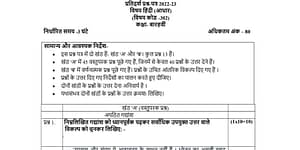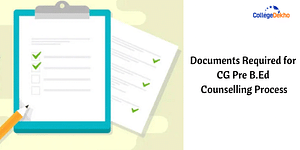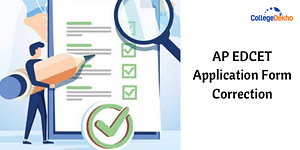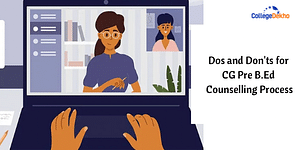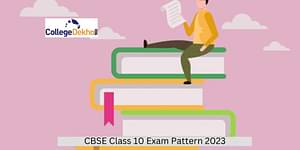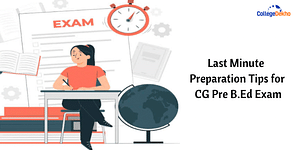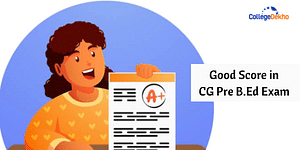Diploma in Special Education
Diploma in Special Education Overview
The Diploma in Special Education is specifically designed to provide individuals with the essential knowledge and skills required to effectively support and educate students who have special needs. This comprehensive course provides an overview of various disabilities and learning challenges, including autism spectrum disorders, intellectual disabilities, attention-deficit/hyperactivity disorder (ADHD), and learning disabilities.
The program covers a wide range of topics, including assessment and evaluation techniques, individualized education plans (IEPs), behavior management strategies, and inclusive teaching methods. Students also learn about different instructional approaches and resources that can be used to meet the unique needs of students with disabilities.
Throughout the diploma, emphasis is placed on fostering an inclusive and supportive learning environment, promoting the social and emotional development of students, and collaborating with other professionals and families. Practical experience through field placements or internships is often an integral part of the program, allowing students to apply their knowledge in real-life settings.
Upon completion of the Diploma in Special Education, graduates are prepared to work as special education teachers or educational support professionals in a variety of educational settings, such as inclusive classrooms, special education schools, or community-based organizations.
Table of Contents
- Diploma in Special Education Overview
- Diploma in Special Education Highlights
- Why study Diploma in Special Education?
- Diploma in Special Education Eligibility Criteria
- Diploma in Special Education Entrance Exams
- Diploma in Special Education Admission Process
- Diploma in Special Education Syllabus and Subjects
- Diploma in Special Education Course Fees
- Required Skill Set for Diploma in Special Education
- Scope of Diploma in Special Education
- Diploma in Special Education Career Options and Job Prospects
- Diploma in Special Education Salary
- FAQs about Dip. in Special Education
Diploma in Special Education Highlights
Here's a table highlighting the key features of the Diploma in Special Education:
Highlights | Description |
|---|---|
| Duration | 1- 2 years |
| Age Limit | No age limit |
| Average Salary | INR 2,50,000 - INR 3,50,000 |
| Course Fees | INR 50,000 - INR 1,50,000 |
| Program Focus | Equipping individuals with skills to support and educate students with special needs |
| Targeted Disabilities | Autism spectrum disorders, intellectual disabilities, ADHD, learning disabilities, etc. |
| Curriculum Coverage | Assessment and evaluation techniques, individualized education plans (IEPs), behavior management, inclusive teaching methods |
| Instructional Approaches | Various strategies and resources tailored to meet the unique needs of students with disabilities |
| Collaboration | Collaborating with professionals and families to ensure holistic support |
| Practical Experience | Field placements or internships for hands-on application of knowledge |
| Career Opportunities | Special education teacher, educational support professional, roles in inclusive classrooms, special education schools, or community-based organizations |
Please note that the table is provided for illustrative purposes and the information provided may vary based on specific institutions and programs offering the Diploma in Special Education.
Why study Diploma in Special Education?
Studying a Diploma in Special Education offers several compelling reasons:
Make a Positive Impact: Special education teachers play a crucial role in supporting students with special needs and making a significant impact on their lives. By pursuing this diploma, you can contribute to the educational and overall development of these students, helping them reach their full potential.
Fulfilling and Rewarding Career: Working in special education can be highly fulfilling and rewarding. You have the opportunity to witness the progress and growth of students, celebrate their achievements, and make a difference in their lives. It provides a sense of purpose and satisfaction in knowing that you are positively impacting the lives of individuals with special needs.
Increasing Demand: The demand for special education professionals continues to rise. With an increasing awareness of inclusive education, there is a growing need for trained individuals who can effectively support and educate students with special needs. Pursuing a Diploma in Special Education can open up diverse career opportunities and enhance your employability in the education sector.
Skill Development: This diploma equips you with specialized knowledge and skills related to assessment techniques, individualized education plans, behavior management, and inclusive teaching methods. These skills are transferable and valuable not only in special education settings but also in other educational contexts, providing you with a versatile skill set.
Personal Growth and Learning: Studying special education promotes personal growth by deepening your understanding of diverse learning needs, fostering empathy, and enhancing your communication and problem-solving abilities. It allows you to develop a greater appreciation for diversity and inclusion, which can positively impact your interactions with people from various backgrounds.
By studying a Diploma in Special Education, you can embark on a fulfilling career that positively impacts the lives of students with special needs, while also gaining valuable skills and personal growth along the way.
Diploma in Special Education Eligibility Criteria
The eligibility criteria for a Diploma in Special Education in India may vary slightly between institutions. However, here are the general requirements:
Educational Qualification: Candidates should have completed their higher secondary education (10+2) from a recognized board or its equivalent.
Minimum Marks: Most institutions require candidates to have a minimum aggregate percentage in their higher secondary education, typically ranging from 45% to 50%. However, this requirement may change depending on the institution chosen by a candidate.
Subject Requirements: Some institutions may have specific subject requirements in the higher secondary education, such as a background in arts, science, or commerce. It is advisable to check the specific requirements of the institution you are applying to.
Age Limit: There is usually no specific age limit for pursuing a Diploma in Special Education. However, candidates must fulfill the age criteria set by the institution or university offering the program.
It is important to note that these eligibility criteria are general guidelines, and it is recommended to check with the specific institution or university offering the Diploma in Special Education for their exact requirements and any additional criteria they may have.
Diploma in Special Education Entrance Exams
While the specific entrance exams for a Diploma in Special Education may vary depending on the institution or university offering the program, here are a few common entrance exams conducted in India for admission to special education courses:
- RCI CET (Rehabilitation Council of India Common Entrance Test)
- AIISH Mysore Entrance Exam
- Jamia Millia Islamia Entrance Exam
- IGNOU B.Ed Special Education Entrance Exam
It is important to note that the availability and specific entrance exams may vary from year to year, and different institutions may have their own unique entrance examinations for admission to their special education programs. It is recommended to visit the official websites of the institutions you are interested in or contact their admissions offices for the most up-to-date information on entrance exams and their respective syllabi, exam dates, and application processes.
Diploma in Special Education Admission Process
The admission process for a Diploma in Special Education may vary from one institution to another. Here is a general description of the Diploma in Special Education admission procedure:
Application: Begin by obtaining the application form for the Diploma in Special Education program. This form can typically be obtained from the institution's website or their admissions office.
Eligibility Check: Ensure that you meet the eligibility criteria specified by your chosen college. This includes having the required educational qualifications and meeting any other criteria, such as minimum marks or subject requirements.
Application Submission: Fill out the application form accurately and provide all the necessary information and supporting documents as requested. Educational certificates, grade reports, identity verification, pictures, and any other documents required by the institution may be among these documents.
Entrance Examination (if applicable): Some institutions may conduct an entrance examination to evaluate the aptitude and knowledge of applicants. If an entrance exam is part of the admission process, prepare for it accordingly and appear for the examination on the scheduled date.
Selection Process: The institution will review the applications and conduct a selection process based on various factors such as academic performance, entrance exam scores (if applicable), and any other criteria set by the institution. Candidates that make the short list might be contacted for additional steps like interviews or counselling sessions.
Merit List and Admission Offer: Once the selection process is complete, the institution will prepare a merit list or selection list of candidates who have been offered admission. The college will send you an admission offer letter if you are chosen.
Confirmation of Admission: If you are given an admission offer, you must confirm your admission by following the directions in the offer letter. This may include paying the admission fee, submitting additional documents, and completing any other formalities as required by the institution.
It is important to note that the specific details of the admission process may vary between institutions. It is recommended to visit the official website of the institution offering the Diploma in Special Education or contact their admissions office for detailed information on their admission process, important dates, and any specific requirements.
Diploma in Special Education Syllabus and Subjects
Here is an example of a syllabus for a Diploma in Special Education program presented in a table format:
Course Modules | Description |
|---|---|
| Introduction to Special Education | Overview of special education, historical perspectives, laws and policies, inclusion |
| Understanding Disabilities | Study of various disabilities: autism spectrum disorders, intellectual disabilities, ADHD, learning disabilities, etc. |
| Assessment and Individualized Education Plans (IEPs) | Techniques for assessing students with special needs, developing IEPs, goal setting, monitoring progress |
| Inclusive Teaching Strategies | Differentiated instruction, adapting curriculum, assistive technology, multisensory approaches |
| Behavior Management | Understanding behavior challenges, positive behavior support strategies, behavior intervention plans |
| Communication and Language Development | Communication disorders, augmentative and alternative communication (AAC) systems |
| Social and Emotional Development | Promoting social skills, emotional regulation, addressing challenging behaviors, peer relationships |
| Teaching Strategies for Specific Disabilities | Strategies for teaching students with specific disabilities, such as autism or intellectual disabilities |
| Family and Community Involvement | Collaborating with families, working with community resources, parent training and support |
| Field Practicum | Practical experience in a special education setting, observation, teaching practice, case studies |
| Professional Ethics and Standards | Ethical considerations, professional responsibilities, advocacy for students with special needs |
| Research Methods and Project Work | Introduction to research in special education, conducting a research project in the field |
Please note that this is just an general syllabus and the actual syllabus may vary between institutions offering the Diploma in Special Education. It is advisable to check with the specific institution or university for their official syllabus and course structure.
Diploma in Special Education Subjects
Here are examples of both core and optional subjects that may be included in a Diploma in Special Education program:
Core Subjects
- Introduction to Special Education
- Understanding Disabilities
- Assessment and Individualized Education Plans (IEPs)
- Inclusive Teaching Strategies
- Behavior Management
- Communication and Language Development
- Social and Emotional Development
- Teaching Strategies for Specific Disabilities
- Family and Community Involvement
- Field Practicum
- Professional Ethics and Standards
Optional Subjects (vary based on specialization or institution)
- Assistive Technology for Special Education
- Autism Spectrum Disorders: Characteristics and Interventions
- Intellectual Disabilities: Assessment and Intervention
- Learning Disabilities: Identification and Remediation
- Attention-Deficit/Hyperactivity Disorder (ADHD): Strategies for Classroom Management
- Speech and Language Disorders: Intervention Techniques
- Sensory Integration and Sensory Processing Disorders
- Applied Behavior Analysis (ABA) in Special Education
- Transition Planning for Students with Special Needs
- Augmentative and Alternative Communication (AAC) Systems
Please note that the availability of optional subjects and their specific titles may vary between institutions offering the Diploma in Special Education. It is advisable to refer to the official course curriculum or contact the specific institution to obtain the most accurate and up-to-date information on the subjects offered in their program.
Diploma in Special Education Course Fees
The course fees for a Diploma in Special Education can vary depending on the institution, location, and other factors. It is important to note that the fees mentioned here are indicative and subject to change. Here is a general range of course fees for a Diploma in Special Education in India:
Government Institutions: In government-funded or government-aided institutions, the course fees for a Diploma in Special Education are relatively lower. The fees can range from approximately INR 5,000 to INR 25,000 for the entire course duration.
Private Institutions: Private institutions or colleges may have higher course fees compared to government institutions. The fees can range from approximately INR 30,000 to INR 1,00,000 for the entire course duration. The fees can vary based on factors such as infrastructure, faculty expertise, and additional facilities provided by the institution.
Deemed Universities: Some deemed universities or prestigious educational institutions may have higher course fees. The fees for a Diploma in Special Education in such institutions can range from approximately INR 50,000 to INR 2,00,000 for the entire course duration.
It is important to consider that the course fees mentioned above are approximate figures and can vary significantly based on factors like the reputation of the institution, location, course duration, and any additional certifications or specializations offered within the diploma program.
Additionally, it is advisable to check with the specific institution or university offering the Diploma in Special Education for the most accurate and up-to-date information regarding the course fees, as they may have their own fee structure and policies.
Required Skill Set for Diploma in Special Education
To excel in a Diploma in Special Education program and in the field of special education, it is beneficial to possess the following skill set:
Empathy and Compassion: Having empathy and compassion is crucial as it enables you to understand and connect with students with special needs, supporting their emotional well-being and fostering a positive learning environment.
Patience and Flexibility: Special education often requires adapting to the unique needs and learning styles of individual students. Patience and flexibility allow you to adjust teaching strategies, accommodate diverse learning needs, and effectively manage challenging situations.
Communication Skills: Effective communication skills are vital for collaborating with students, families, and other professionals. Clear and concise communication helps in conveying instructions, providing feedback, and building strong relationships with all stakeholders.
Problem-Solving Abilities: Special education requires identifying and addressing specific challenges faced by students. Strong problem-solving skills enable you to develop individualized approaches, modify teaching methods, and implement interventions to support student progress.
Organizational and Time Management Skills: Special education involves managing diverse responsibilities, including lesson planning, individualized education plans (IEPs), assessments, and documentation. Strong organizational and time management skills help you stay organized, meet deadlines, and efficiently handle administrative tasks.
Collaboration and Teamwork: Special education often involves working collaboratively with a multidisciplinary team, including teachers, therapists, administrators, and parents. Collaborative skills facilitate effective teamwork, information sharing, and coordinated support for students.
Adaptability and Resilience: The field of special education can present unexpected challenges. Being adaptable and resilient enables you to adjust to changing circumstances, embrace new strategies, and maintain a positive attitude even during demanding situations.
Knowledge of Special Education Laws and Policies: Familiarity with relevant laws and policies, such as the Individuals with Disabilities Education Act (IDEA) in the United States or the Rights of Persons with Disabilities Act in India, ensures compliance and upholds the rights of students with special needs.
Creativity: Employing creative teaching methods and adapting instructional materials to suit diverse learning styles enhances student engagement and learning outcomes in special education.
While these skills are beneficial for success in the field of special education, it is important to continuously develop and refine them through practical experience, professional development opportunities, and ongoing learning.
Scope of Diploma in Special Education
A Diploma in Special Education opens up a wide range of career opportunities in the field of education and special needs. The scope of this diploma is promising due to the increasing recognition of inclusive education and the growing demand for trained professionals to support individuals with special needs. Graduates can find employment in various settings, including:
Special Education Schools: Diploma holders can work as special education teachers in dedicated schools for students with disabilities, providing individualized instruction and support.
Inclusive Schools: Inclusion is a growing trend, and special education professionals are needed in mainstream schools to support the inclusion of students with special needs.
Rehabilitation Centers: Graduates can work in rehabilitation centers, offering therapeutic interventions and support services to individuals with disabilities.
Nonprofit Organizations: Many nonprofits focus on advocating for the rights of individuals with special needs and providing support services. Diploma holders can contribute to such organizations in various roles.
Early Intervention Programs: Working in early intervention programs allows professionals to support young children with developmental delays and disabilities, promoting their overall development.
Educational Consultancy: Diploma holders can work as consultants, offering guidance and support to schools and teachers in implementing inclusive practices and meeting the needs of students with disabilities.
The scope also extends to pursuing higher education, such as bachelor's and master's degrees in special education or related fields, which can lead to advanced career opportunities in research, administration, curriculum development, or specialized areas of special education. Overall, the scope of a Diploma in Special Education is promising, providing diverse career options to make a positive impact on the lives of individuals with special needs and contribute to an inclusive society.
Diploma in Special Education Career Options and Job Prospects
A Diploma in Special Education equips graduates with the necessary knowledge and skills to pursue various career options in the field of special education. Here are some career options and job prospects for diploma holders in special education:
Special Education Teacher: Diploma holders can work as special education teachers in special schools, inclusive classrooms, or resource centers. They provide individualized instruction, develop lesson plans, and support students with special needs in their academic and social development.
Resource Room Teacher: In mainstream schools, resource room teachers provide specialized support to students with disabilities, helping them access the curriculum, develop appropriate strategies, and facilitate their inclusion in regular classroom settings.
Early Intervention Specialist: Graduates can work in early intervention programs, focusing on supporting infants and young children with developmental delays or disabilities. They provide early identification, assessment, and intervention services to promote their overall development.
Special Education Coordinator: Special education coordinators oversee and manage special education programs in schools or school districts. They collaborate with teachers, parents, and administrators to ensure appropriate support and services for students with special needs.
Behavioral Therapist: Diploma holders can work as behavioral therapists, applying behavior analysis principles to address challenging behaviors and teach adaptive skills to individuals with special needs.
Educational Consultant: Graduates can work as educational consultants, providing guidance and support to schools, teachers, and parents on inclusive education practices, individualized support plans, and curriculum modifications.
Rehabilitation Counselor: Diploma holders can work as rehabilitation counselors in rehabilitation centers, helping individuals with disabilities develop skills, access resources, and transition into employment or independent living.
Nonprofit Organizations: Many nonprofit organizations focus on advocacy, support, and services for individuals with special needs. Diploma holders can work in various roles such as program coordinators, community outreach specialists, or case managers.
Assistive Technology Specialist: Graduates can specialize in assistive technology and work with individuals with disabilities to assess, select, and use technology tools and devices that enhance their communication, learning, and independence.
Research Assistant: Diploma holders can work as research assistants in educational or disability-related research projects, contributing to the advancement of knowledge and evidence-based practices in special education.
The job prospects for diploma holders in special education are promising, given the increasing demand for trained professionals to support individuals with special needs in inclusive educational settings and other related fields. Career opportunities can be found in schools, government agencies, private organizations, nonprofit sectors, and community-based programs. Continuous professional development and pursuing higher education can further enhance career advancement opportunities in special education.
Diploma in Special Education Salary
Here is an example of approximate salary ranges for different career options after completing a Diploma in Special Education:
Career Options | Approximate Salary Range (INR) |
|---|---|
| Special Education Teacher | 15,000 - 25,000 per month |
| Resource Room Teacher | 20,000 - 30,000 per month |
| Early Intervention Specialist | 15,000 - 25,000 per month |
| Special Education Coordinator | 25,000 - 40,000 per month |
| Behavioral Therapist | 20,000 - 35,000 per month |
| Educational Consultant | 25,000 - 50,000 per month |
| Rehabilitation Counselor | 20,000 - 35,000 per month |
| Nonprofit Organization Roles | 15,000 - 30,000 per month |
| Assistive Technology Specialist | 25,000 - 40,000 per month |
| Research Assistant | 15,000 - 25,000 per month |
Please note that these salary ranges are approximate and can vary depending on factors such as the geographical location, type of organization, years of experience, and additional qualifications. Salaries may also vary between different sectors, such as government, private, or nonprofit organizations. It's important to consider that these figures are provided as a general guideline, and actual salaries may differ based on individual circumstances and market conditions.
FAQs about Dip. in Special Education
Are there any entrance exams for admission to a Diploma in Special Education program?
Yes, there are some institutions like IGNOU that conduct entrance exams for admission to a Diploma in Special Education program in India. The specific entrance exam requirements and procedures vary between institutions, and candidates are advised to check with the respective institutions for detailed information regarding entrance exams and their application process.
Are there any additional certifications or professional development courses that I can pursue alongside a Diploma in Special Education?
Yes, there are various additional certifications and professional development courses that you can pursue alongside a Diploma in Special Education, such as certification in Applied Behavior Analysis (ABA), Assistive Technology, Augmentative and Alternative Communication (AAC), Sensory Integration, or specific training programs for specific disabilities like Autism Spectrum Disorders or Learning Disabilities.
What are the common challenges faced by special education professionals in India?
Special education professionals in India may face challenges such as limited resources, lack of awareness and understanding about disabilities, overcrowded classrooms, and the need for continuous professional development. Overcoming these challenges requires advocacy, collaboration, and ongoing efforts to improve inclusive education practices and support systems.
Can I work abroad with a Diploma in Special Education from India?
Yes, you can work abroad with a Diploma in Special Education from India. However, the specific requirements and recognition of the diploma may vary depending on the country you intend to work in. It is advisable to research and understand the qualifications and regulations of the destination country to ensure that your diploma is recognized and to meet any additional requirements for working in special education abroad.
Can I pursue a Diploma in Special Education if I have a disability myself?
Yes, individuals with disabilities themselves can pursue a Diploma in Special Education. The program aims to provide knowledge and skills to support students with special needs, regardless of the learner's own disability. This inclusivity enhances their understanding and empathy towards students, and they can contribute effectively to the field of special education.
Is there a difference between a Diploma in Special Education and a Bachelor's degree in Special Education?
The main difference between a Diploma in Special Education and a Bachelor's degree in Special Education is the level of education and depth of knowledge provided. A Diploma focuses on specific skill development and practical training, typically requiring a shorter duration. In contrast, a Bachelor's degree offers a comprehensive understanding of special education, including theoretical foundations and a broader range of coursework. A Bachelor's degree often leads to more advanced career opportunities and further specialization in the field.
Are there any scholarships available for students pursuing a Diploma in Special Education?
Yes, scholarships are available for students pursuing a Diploma in Special Education. Various organizations, government bodies, and educational institutions offer scholarships and financial assistance to support deserving students in their educational journey. Eligibility criteria, application procedures, and scholarship amounts may vary, so it is recommended to research and inquire with specific scholarship providers for more information.
Are there any age restrictions for pursuing a Diploma in Special Education?
There are typically no age restrictions for pursuing a Diploma in Special Education. Anyone who meets the requirements can join the programme, regardless of age. The focus is on acquiring the necessary knowledge and skills to work effectively with students with special needs, regardless of age.
Can I start my own special education center after completing the Diploma in Special Education?
Yes, after completing a Diploma in Special Education, you can start your own special education center. However, it is important to gain sufficient experience and knowledge in the field before venturing into independent practice. Compliance with local laws and regulations and establishing a strong network within the special education community is crucial for success.
Can I pursue the part-time Diploma in Education while working?
Yes, many institutions offer part-time or distance learning options for the Diploma in Special Education, allowing students to pursue the program while working. This flexible approach enables individuals to gain specialized knowledge and skills in special education without compromising their professional commitments.
Can I pursue a Diploma in Special Education after completing 12th grade?
Yes, you can pursue a Diploma in Special Education after completing 12th grade in India. The eligibility criteria may vary between institutions, but many institutes offer this diploma program to individuals who have completed their 12th grade or equivalent education from a recognized board or university.
Is a distance B.Ed in Special Education Course valid in India?
Yes, a distance B.Ed in Special Education Course valid in India.
Can I work as a special education teacher after completing the Diploma in Special Education?
Yes, upon completing a Diploma in Special Education, you can work as a special education teacher. The diploma equips you with the necessary knowledge and skills to support and educate students with special needs, enabling you to take up teaching positions in special schools, inclusive classrooms, or resource centers.
Are there any practical experience or internships are included in the Diploma in Education program?
Practical experience and internships are an integral part of the Diploma in Special Education program. These hands-on opportunities allow students to observe and participate in special education settings, apply theoretical knowledge, develop teaching skills, and gain practical insights into supporting individuals with special needs. However, not every institute will include internships in their course curriculum, therefore, candidates must check the same before applying.
Do I need a background in education to pursue a Diploma in Special Education?
No, a background in education is not always required to pursue a Diploma in Special Education. However, having prior knowledge or experience in the field of education can be beneficial in understanding teaching methodologies and working with students, especially in inclusive or mainstream school settings.
Is the Diploma in Special Education recognized by the government?
Yes, the Diploma in Special Education is recognized by the government. It is important to ensure that the program you choose is affiliated with a recognized institution or university to ensure the validity and credibility of the diploma.
Can I pursue a Diploma in Special Education through distance learning?
Yes, it is possible to pursue a Diploma in Special Education through distance learning. Several institutions offer distance education programs in special education, allowing students to study at their own pace and convenience. These programs often include online lectures, study materials, and virtual interactions with instructors and fellow students.
What is the duration of Diploma in Special Education course?
The duration of Diploma in Special Education course ranges from 1 - 2 years.
How can I become a special education teacher in India?
To become a special education teacher in India, you typically need to follow these steps:
- Complete a relevant degree, such as a Bachelor's or Diploma in Special Education.
- Gain practical experience through internships or fieldwork in special education settings.
- Apply for teaching positions in special schools or inclusive classrooms.
- Clear any required examinations or interviews by the hiring institutions.
- Obtain any necessary certifications or licenses as per state or national regulations.
Is B.Ed and B.Ed in Special Education the same?
No, B.Ed and B.Ed in Special Education are not the same. B.Ed is a general education degree that focuses on teaching in regular classrooms, while B.Ed in Special Education is a specialized program that focuses on teaching students with special needs and includes specific courses related to special education methodologies and strategies.
What is Diploma in Special Education?
Diploma in Special Education is a specialized program that equips individuals with the knowledge and skills needed to support and educate students with special needs. This diploma focuses on understanding various disabilities, developing individualized education plans (IEPs), implementing inclusive teaching strategies, and promoting the overall development of students with special needs.
Which diploma course is best for Special Education?
The Diploma in Special Education (DSE) is considered one of the best diploma courses for Special Education. It provides comprehensive knowledge and skills to support and educate individuals with special needs, opening up a range of career opportunities in the field.
Related Questions
Popular Courses
Dip. in Special Education Colleges in States
Dip. in Special Education Colleges in Cities
Dip. in Special Education Colleges by College Type
- Courses
- Diploma in Special Education

